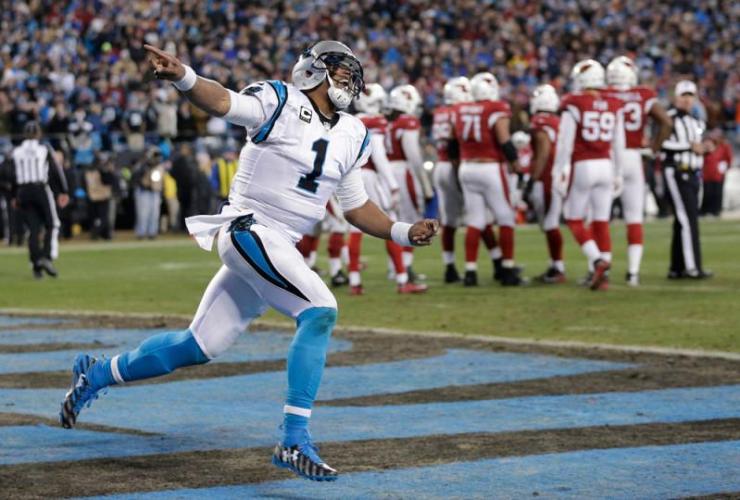
Almost as soon as the matchup for Super Bowl 50 was set, the gambling line for the Denver Broncos-Carolina Panthers was revealed — Vegas casinos opened with the Panthers favored by five and a half points (-5.5).
The last time the Denver Broncos were in the Super Bowl two years ago, $119 million was wagered legally in Las Vegas, according to a report from the Associated Press. The amount of bets placed on the Super Bowl have increased in nine of the last 10 years, and it’s not a stretch to say that this year’s Super Bowl will again break that record.
Meanwhile, Illinois Attorney General Lisa Madigan argued in court last week to dismiss the lawsuits brought by the daily fantasy sites DraftKings and FanDuel. The two companies and the state will fight in court over whether daily fantasy sports are considered gambling or not.
But that discussion misses the point, and the Super Bowl is another reminder why.
It’s time to legalize sports gambling.
“It comes to down one issue: control of the situation,” DePaul professor Phil Meyers, who teaches a class on sports law and politics, said. “That’s the key issue whether something is considered gambling or not, and it’s a gray area. It can fall on one side or it can fall on another, depending on lobbying and where the money is.
“It’s about money and control.”
 The money is certainty there.
The money is certainty there.
In August, the American Gaming Association sent out a news release that estimated that $95 billion would be placed on the upcoming football season with only $4 billion of that being legal. Online sports gambling has blown up, and while technically illegal in the U.S., it’s easy to place wagers at the various websites out there that are hosted outside the U.S.
If the U.S. were to legalize it, the global gaming research firm Gambling Compliance produced a report that said the U.S. would project as much as $12.5 billion in gross gaming revenue if sports gambling were to be to legal.
If gambling were to be reformed, it would most likely have to be on a federal level. The U.S. Third Circuit Court of Appeals struck down laws in New Jersey that would have made it legal to bet on games, saying it violated the Professional Sports and Amateur Protection act of 1992.
The law, which allows sports betting to be legal in Nevada, Oregon, Delaware and Montana, is outdated. It’s hypocritical that people living in four states can enjoy legal wagering on sports, but the other 46 states can’t. In addition, Nevada is the only state with sports books that allows betting on head-to-head games.
Gambling, especially sports gambling, is no longer thought of as the moral decay that it was once painted out to be. Sports lines and odds are constantly talked about during live broadcasts. ESPN has an entire section on their website devoted to daily lines (“Chalk”) and even sports leagues themselves are coming around to it. NBA commissioner Adam Silver and MLB commissioner Rob Manfred have both said legalizing sports gambling is worth looking into.
As Meyers said, it’s about control. If leagues, for instance, could potentially share that revenue, stances would change in a hurry.
“They don’t want money made off of them without getting their take,” Meyers said. “It’s like watching ‘Godfather 2’ and [the scene] where it’s like ‘I want to get my beak wet.’”
Meyers also said that with today’s lucrative contracts, it’s less likely that athletes would jeopardize themselves with betting on their own sports or cheating during the course of the game.
Sports betting can be regulated as well. The United Kingdom, where sports betting is legal, has commissions such as the Remote Gambling Association, European Gaming and Betting Association, Association of British Bookmakers and the European Sports Security Associtation to oversee betting and laws. Similar types of commissions should be established in the U.S.
One can’t watch sports anymore without hearing about the spread, odds or any other gambling-related terms. Viewers are almost sure to hear about it during about the biggest sporting event of the year.
As for Super Bowl 50, take the points. The Broncos’ defense will cover.
And I should be legally able to do that.

